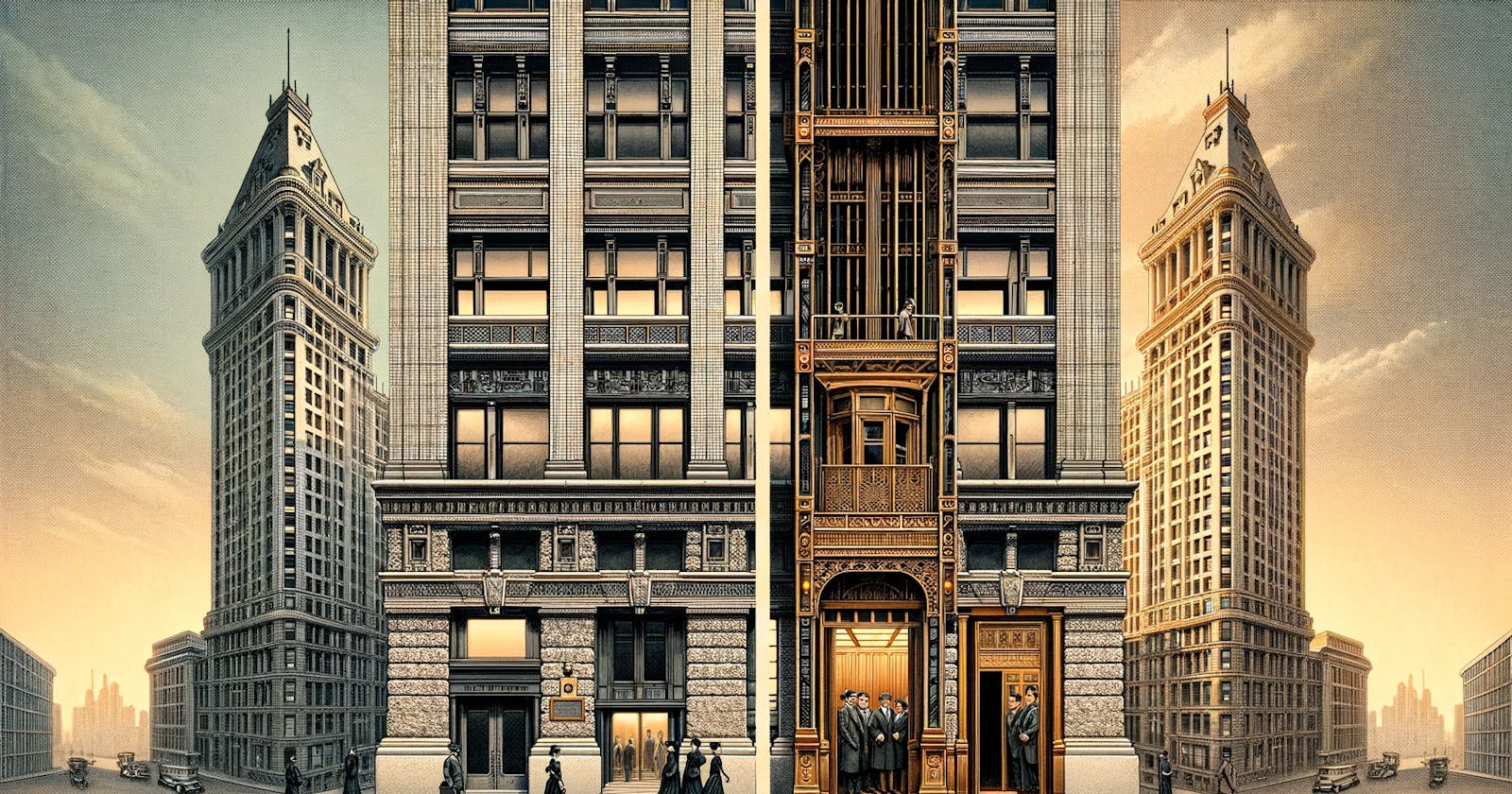Introduction: A Glimpse into 1900's New York
Let's take a trip to the early 1900's New York. The economy was booming, lot of people were flocking in for the new opportunities & business potential, to satisfy this insane demand, the city had went on a spree of building sky scrapers where some of the tallest buildings at the time were being built in this era. 🚀
The Sky-High Problem
As the skyscrapers got taller and taller, one little problem that was non existent in the past, is now becoming a headache:- "Boredom". You see, the elevator tech in the early 1900's was nowhere as sophisticated as we have today, and the speed of elevators couldn't keep up with the rate at which the skyscrapers were getting taller.🏙️
This caused a huge increase in complaints regarding the elevators being slow, as more and more people had to spend more of their time is an elevator, this problem kept on growing. 📈

A Conventional Approach
To address this issue, the city council invited a few consultants most being engineers. The engineers immediately started thinking of different technical scenarios such as installing a newer elevator, using an even more powerful motor etc, but to everyone's dismay, most of the solutions were either not possible due to the technical constraints of that era or were too impractical to be implemented.

Thinking Outside the Box
But there was this one particular consultant who had a weird yet interesting idea of installing mirrors in the elevators. No-one in the council though this as a serious idea, but since nothing else worked, they decided to give it a try and started attaching mirrors in the elevators.

Within a month of installing the mirrors, the complaints dropped by more than 50% 📉, this surprised everyone in the council. They called the psychologist once again to gain insight on his reasoning behind adding mirrors in the elevators.
A Reflection on Success
The psychologist explained his reasoning being simply taking a step back and understanding the root-cause behind the massive number of complaints, which he deduced to be "Boredom", as people had nothing to do except staring a soul-less door of the elevator while they were in there (which was increasing as the building kept getting taller). The psychologist attacked the root cause by providing the people something to do while they were in there.

Conclusion: The Power of Perspective
Rather than jumping directly into solving the problem at hand, we should rather take a step back and ask ourselves: why this problem exists? and how it came to be?
This could give us a different perspective for taking on the problem, and potentially save a lot of time and effort, So next time you face a daunting problem, ask yourself: ***is there a 'mirror' solution that I'm overlooking?***🪞

Referance - https://hbr.org/2017/01/are-you-solving-the-right-problems
